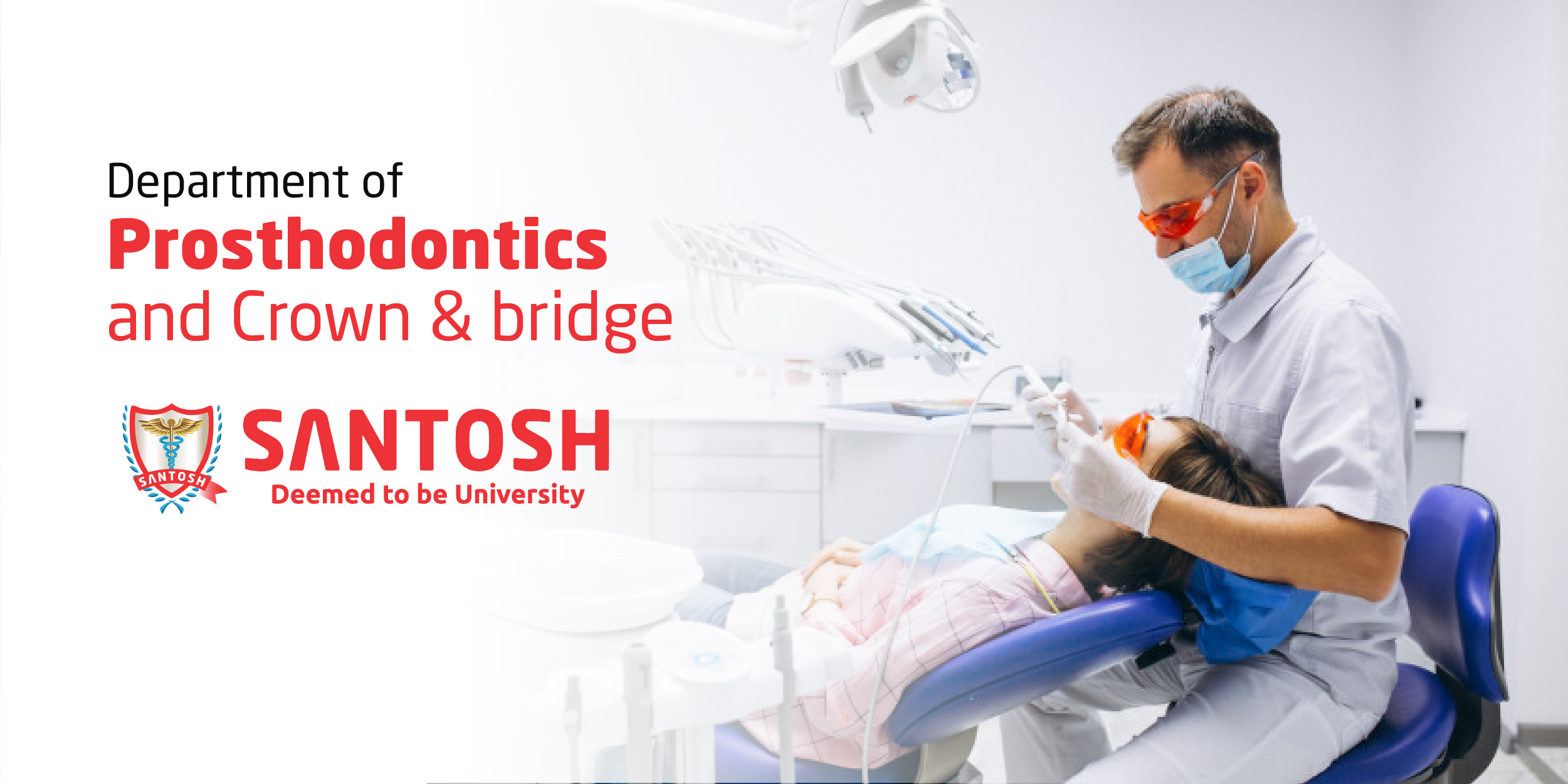
Santosh dental college, located in Delhi, NCR is one of the premier institutes in the country that offers excellent dental services. The institute is now considered as the best medical university in India, 25 years after its inception. The institute brings about a conglomeration of some of the finest dentists, teaching professionals, and other healthcare professionals in the country. This dedicated team provides the highest standards of dental treatment that ensures no patient goes home unsatisfied or unhappy.
Dr Akshay Bhargav Dean Dental College, Santosh university is dedicated to a triple mission of education, research and service. He is committed to maintaining an educational environment for all students which prepares them for a career of excellence in the practice of medicine and service to their communities.
Department of prosthodontics and crown and bridge has been a major part of Santosh University and is thrilled to educate and upskill the students of undergraduate and postgraduate courses. We offer them a clear insight into this field of expertise with forbearance and compassion
Prosthodontics is “the dental specialty pertaining to the diagnosis, treatment planning, rehabilitation and maintenance of the oral function, comfort, appearance and health of patients with clinical conditions associated with missing or deficient teeth and/or oral and maxillofacial tissues using biocompatible substitutes.
TREATMENT FOR MISSING TEETH!!!
Do you have missing teeth? Worried about how best to replace them?
There are various replacement options available: dentures, fixed bridges and implants. If you are missing a single tooth or multiple teeth, the best treatment will be Dental Implants. A tooth crown, bridge, or dentures can be attached to the top of the implant for a natural-looking replacement that matches remaining teeth.
WHAT IS A DENTAL IMPLANT?
Dental implant is an artificial titanium fixture which is placed surgically into the jaw bone to substitute for a missing tooth and its root.
TYPES OF DENTAL IMPLANTS?
The American Dental Association considers two types of implants to be safe. They are:
• Endosteal implants — these are surgically implanted directly into the jawbone. Once the surrounding gum tissue has healed, a second surgery is needed to connect a post to the original implant. Finally, an artificial tooth (or teeth) is attached to the post- individually, or grouped on a bridge or denture.
• Subperiosteal implants — these consist of a metal frame that is fitted onto the jawbone just below the gum tissue. As the gums heal, the frame becomes fixed to the jawbone. Posts, which are attached to the frame, protrude through the gums. As with endosteal implants, artificial teeth are then mounted to the posts.
ADVANTAGES OVER CONVENTIONAL BRIDGES & REMOVABLE DENTURE
• Implants help retain jawbone structure
• Improves Quality of life
• Diet and nutrition are positively impacted
• No need of cutting down perfectly healthy teeth as in the case of bridge.
• Long lasting results
• Good aesthetics
Replacing one tooth
Replacing a single tooth with a dental implant allows for desirable long-term functional and aesthetic results. It Eliminates the need to grind down healthy adjacent teeth or use clasps for support as in case of bridges and Removable partial dentures respectively.
Replacing several teeth
When several adjacent teeth are missing, an implant supported bridge is an excellent way to replace them.
Replacing all teeth with a fixed denture
These restorations are stable, strong, and do not need to be removed. They preserve your facial appearance and stabilize bone levels. The number of implants needed per arch to complete this rehabilitation is different for each patient, but traditionally 4-8 implants are needed in the upper jaw (as bone is less dense) and 4-6 in the lower jaw to support this type of restoration.
Replacing all teeth with an implant-supported removable denture
Placement of dental implants to facilitate an overdenture restoration will aid in minimizing future ridge resorption and improve denture stability.